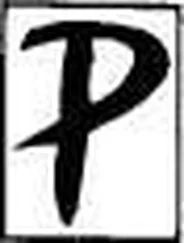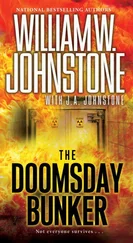“It’s not hyperbole. I wish it were, but it isn’t.”
“Maybe I should get out more,” Bob said.
“No, you are probably better off holed up down there on the beach, away from everything. I would think that now is the time to just dig in and wait until this all blows over,” Shirley said.
“I’ll miss coming over here,” Bob said. “And if you ever decide to reopen, let me know. I’ll be your first guest author.”
“If I ever reopen, yes,” Shirley said wistfully. “It would be wonderful to think so.”
As was his custom, Bob called his agent after the signing to tell him how the signing went.
“You have reached The Taylor Group Literary Agency. Please leave your name and telephone number.”
Bob also knew Greg Taylor’s personal cell number, so he called that.
“Hello, Bob,” Greg answered.
“Hi, Greg. I forgot this was Saturday and I called the office,” Bob said. “I didn’t leave a message, but when you go in to the office Monday and check your missed calls, one will be from me, so you can just disregard it.”
“I won’t be going into the office Monday,” Greg said. “No one will be. There is no office, there is no agency.”
“What? What are you talking about?”
“You haven’t checked your e-mail, have you?”
“No. What happened?”
“Ohmshidi is what happened,” Greg said. “Bob, there is no agency, because there is no publishing. As of Monday morning, every publishing house in New York will be closing its doors.”
“Every publishing house? You mean Kinston?”
“I mean Kinston, Berkline, Pelican; Pulman, Harkins and Role, Bantar; Dale, St. Morton—all of them, every publishing house in New York. The cost of fuel has shut down not only Ingerman, but every other distributor as well. And you know better than anyone that the book industry cannot survive without distribution. The only thing left now is online publishing. I tried to move the three books you have on contract with Kinston to Spindle press. Spindle agreed to take the books, but they are offering no advance, just royalties against the Internet sales. I told them I would talk to you, but to tell the truth, I don’t think it’s worth it. And since Kinston closed its doors, you are under no obligation to complete the three remaining books. I’d advise you to not to write any of them since you would be writing them for nothing.”
Bob was silent for a long moment.
“Are you still there?”
“Yeah, I’m still here,” Bob said.
“I wish I had better news for you.”
“Yeah, so do I.”
“It’s been good working with you, Bob. I wish you all the best.”
“Thanks, Greg. You too,” Bob said. He punched the cell phone off and continued his drive to the Wash House Restaurant, where he was to meet his wife, Ellen, and their neighbors, James and Cille Laney, and Jerry and Gaye Cornett, from The Dunes at Fort Morgan.
Ellen was surprised when she saw Bob coming in.
“I thought you were signing books.”
“I did sign them.”
“Already? That was quick.”
“There were only four books to sign.”
“Only four books? That doesn’t sound like Shirley. She always keeps a lot of your books on hand.”
“Not today.”
“You should call Gary right now, and tell him that she only received four books. He could probably find out what happened,” Ellen said. Then, to the others, she added, “Gary Goldman is Bob’s editor. He’s been with Bob through three publishing houses, Bantar, Berkline, and now Kinston.”
“I can’t call Gary because there is no Kinston publishing anymore,” Bob said, morosely.
“Oh, Bob! No!” Ellen said. “Kinston has gone out of business? But they are one of the strongest houses in New York. Well, is Greg going to try and put you somewhere else?”
“Greg closed the agency, and there is nowhere else.”
“What—what do you mean?” Ellen asked in a small, frightened voice.
“There’s no Bantar or Berkline or St. Morton,” Bob said. “There are no publishing houses anywhere, and no distributors.”
“If that is the case . . .” She let the sentence die, unable, or unwilling to finish it.
“If that’s the case, I am out of work,” Bob said, finishing the sentence for her.
“And with your retirement income halted,” Ellen added. “Oh, Bob, what are we going to do?”
“We’re going to do what every other American is doing,” Bob said. “We are going to find some way to survive. And we can start by having lunch.”
“I don’t know,” Ellen said. “Maybe we shouldn’t be spending money eating out until we know where this is all going to go.”
“We may as well spend the money,” Bob said. “I have a feeling it will be worth about half as much tomorrow.
“This is getting bad for everyone,” Jerry said. “I was talking to my broker yesterday; he said things are going to hell in a hand bucket on Wall Street. It’s the total opposite of economic crisis in the past. Instead of the Dow going down, it is going up every day. But even though the Dow is now more than three hundred percent higher than it was when Ohmshidi was sworn in, its real value, according to my broker, is about one-fourth of what it was.”
“I don’t write books and I don’t have any money in the stock market,” James said. “All I have is my retirement from the power company, and it hasn’t gone up one dime since all this began. Hell, my monthly income used to be enough to enable Cille and me to live comfortably. Now, it is going to take an entire month’s retirement check, just to pay for this meal.”
“James, maybe we shouldn’t eat here,” Cille said. “Maybe we should save our money, and go back home.”
“Why?” James asked. “Bob is right. Whatever we spend today is probably worth twice as much as what it will be tomorrow. This may be our last meal out, so I say let’s enjoy it.”
Monday, May 28
Bob and Ellen Varney owned a house on the beach and a condo in St. Louis. They had a condo in St. Louis because they had a son who lived there with his wife and son. Every summer they rented out the beach house, earning enough rental income to pay for their St. Louis condo. The idea was that when they got too old to be able to live in the beach house, they would sell it, then move to St. Louis and live there full time.
Normally by this time of the year their house would be rented and they would already be in St. Louis. But so far not one person had booked their house for the summer. In fact, Sunrise Properties, who handled the rental for them, confided to Bob that not one of the thirty-six houses they managed had been rented.
Bob was sitting on the sofa in his living room, watching television. His wirehaired Jack Russell, Charley, was on the sofa with him, lying up as close to Bob’s leg as he could get. Bob was rubbing Charley behind his ears.
Bob watched World Cable News almost exclusively. His son, who was considerably more liberal in his thinking, had often teased Bob about watching the most conservative of all the cable news channels, but Bob believed, sincerely, that WCN was the most accurate in their reporting. Besides, WCN had George Gregoire, and Gregoire was Bob’s favorite commentator. But Gregoire did not come on until six o’clock, and it was just a little after five, so Bob was watching the Evening News Report with Sherman Jones.
You are looking at pictures of the many Liberty Party rallies held across the country today. Although the Liberty Party has neither national organization nor officers, they have sprung up since the election of Ohmshidi to make their feelings known. This rally, held in Chicago, had well over two hundred thousand in attendance. Similar rallies have been held in Cleveland, Philadelphia, New York, and Houston so far, and they are planning a large rally in Washington, D. C. But if you didn’t watch WCN, or didn’t know someone, personally, who attended one of the rallies, you wouldn’t know anything about it. Not one of the other networks has carried so much as one minute of news pertaining to the Liberty Party rallies.
Читать дальше









